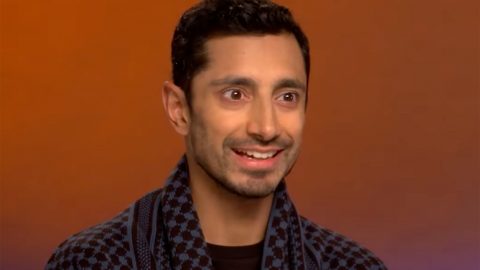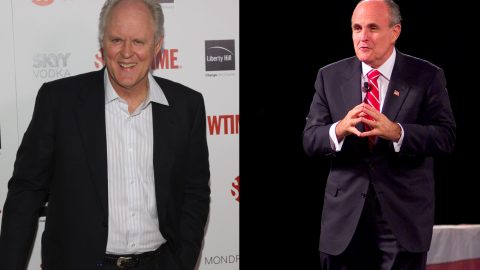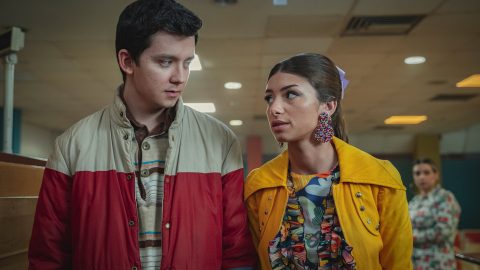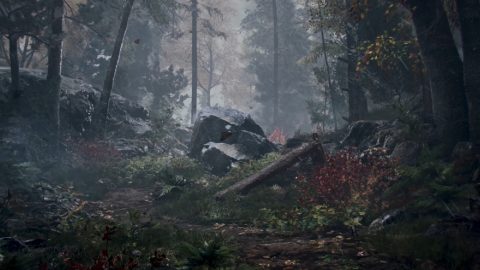NME Music News, Reviews, Videos, Galleries, Tickets and Blogs | NME.COM

Immigration is one of the most divisive topics in the world – guaranteed to blow up a quiet pub chat or turn a taxi trip sour. Everyone’s got an opinion, and regardless of where you stand, refugees need our help. Currently, an estimated 70 million people have been displaced globally and many of them are defined legally as ‘stateless’, which means they’re without any citizenship whatsoever.
Cate Blanchett began working with the UNHCR (the United Nations High Commissioner for Refugees), as a goodwill ambassador for stateless people back in 2014. The actor, known for roles in Oscar-winning films like Carol, Blue Jasmine and The Lord Of The Rings, has now co-created a new six-part Netflix drama based on her experiences in the field. It’s called Stateless, and represents a rare foray into television.

Stateless details Australia’s on-shore detention programme at the turn of the millennium. In it, four fictional characters with wildly different stories end up at the same immigration centre in the dustbowl of southern Australia. Among their number is Sofie (Yvonne Strahovski – The Handmaid’s Tale, Dexter), a flight attendant who flees a suburban cult led by the wild-eyed Pat Masters (Blanchett) and her glitzy, enigmatic partner Gordon (Dominic West – The Wire, Brassic).
Broadcast on ABC in Australia back in March, Stateless is only now getting a global release via Netflix. We sat down with Blanchett and her co-star Dominic West to find out what the world’s been missing.
What is the one thing every ‘stateless’ person has told you?
Cate Blanchett: “They have all said that they feel invisible and in limbo. They have no access to basic human rights. And it can happen from something as simple as losing your passport or your identity papers. Without the ability to prove your identity your children can’t get an education, you can’t access basic medical care, you can’t get married — all basic human rights that we take for granted.”
Dominic West: “I haven’t experienced being stateless politically but what’s so striking is how close we all are to this. I’ve been homeless for a night in London without money. It was astonishing how quickly you become invisible and how quickly you become reviled and how quickly you realise all you’ve got to appeal to anyone is a common humanity. And that’s just not having money, never mind being a refugee or escaping a regime.”
What do people get wrong about ‘stateless’ people?
CB: “I get very concerned when I hear people talk about migrants and immigrants when in actual fact what they are either talking about are stateless people, refugees or asylum seekers. Under the Universal Declaration of Human Rights every human being has the right to seek asylum, so you can’t call a refugee an immigrant. Or illegal.”

How does Britain compare to Australia when talking about refugees?
CB: “I noticed it in the lead-up to Brexit and the misinformation that was used in getting that one across the line: you frighten people with inflammatory language. We have the power of speech, and language is incredibly specific. Refugees will be called ‘migrants’, because the fear [that is induced] is that they are coming to take our jobs. Language is the first point of disconnection, and I think it’s really important that we use the right words for these things.”
Are there any personal stories that have stuck with you?
CB: “I remember a Rohingya [a stateless ethnic group from Myanmar] woman I met in Bangladesh with a young child she had given birth to whilst fleeing through a forest. She hid for six months, foraging and trying to feed her child. I was completely transported to when I gave birth to my first child. The idea of not being able to support and feed that child whilst being attacked and fearing, not only for my own life but, for my child’s life… Half of the world’s displaced are children and seeing children in detention is an indescribably heart-breaking thing. Not being able to educate your children and the ongoing trauma that they experience; it makes me so grateful for the things that we take for granted.”

Cate, Stateless joins your humanitarian work with your acting career – would you like to do more projects like that?
CB: “Definitely. If you find yourself with a platform, you can either use it for self-aggrandisement – which I do occasionally (laughs) – or for positive ends, hopefully. It has been life-changing for me and my family to be involved with UNHCR. You can’t un-see things and my role as a goodwill ambassador is to bring back those stories and to humanise the people; give dignity to those terribly vulnerable people around the world who have become faceless numbers.”
How has working with refugees changed your life?
CB: “My husband and I don’t quarantine what we do from our children. We talk about it around the dinner table. Our 11-year-old came with us when we went to Jordan on a mission. We watched him play soccer with the boys in Azraq Camp [a refugee camp built for survivors of the Syrian Civil War]. There was one boy who was the same age and he wouldn’t get up to play. Our son said, ‘Ah, he doesn’t want to play.’ I said, ‘No, darling, he got shot. He’s still got shrapnel in his foot from when he was crossing from Syria to Jordan. He can’t walk properly so he can’t play with you.’ You could just see him thinking, ‘this is so outside of my experience.’
“And you could see that as he climbed into a jeep to leave he realised those children were staying there indefinitely. Whether he remembers it consciously or not, you get altered by those exchanges, I think.”

What do you hope audiences will take away from Stateless?
DW: “The importance of this, I suppose, is ultimately to remind us of our common humanity. These aren’t people who should just be chucked in the bin. I’m about to do something on [US military prison] Guantanamo Bay, which is another instance of a government finding a convenient dustbin for people who are difficult, and I think that is very much what this is about. You can’t do that to people.”
CB: “The series is not worthy, it is not educative. That was never our intention. It is human and, hopefully, affecting. We are hoping that will drive a more engaged conversation rather than a fear-based conversation.”
‘Stateless’ is streaming on Netflix now
The post “It has been life-changing”: Cate Blanchett and Dominic West on refugee drama ‘Stateless’ appeared first on NME Music News, Reviews, Videos, Galleries, Tickets and Blogs | NME.COM.






